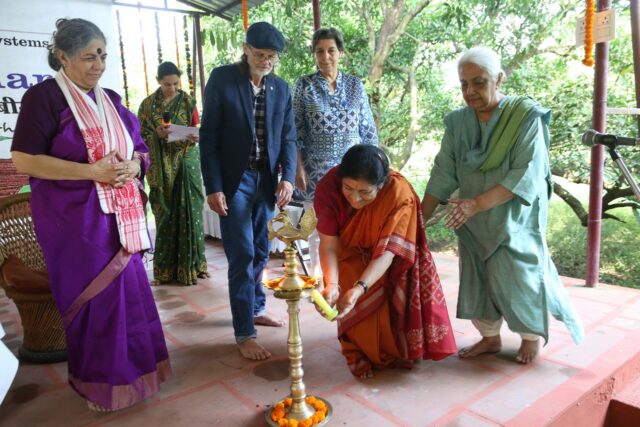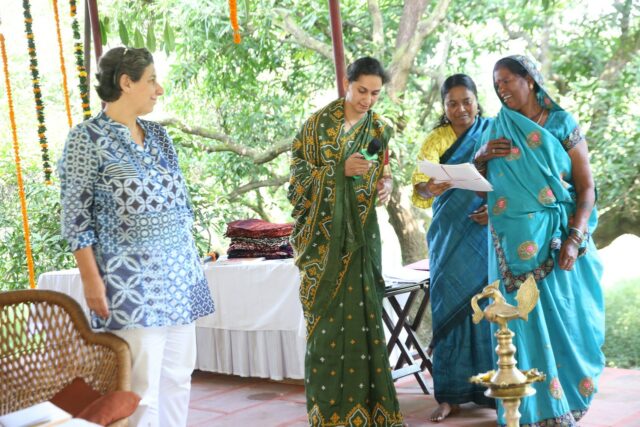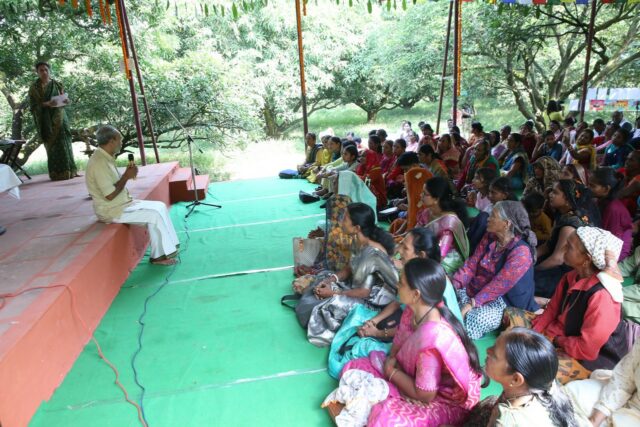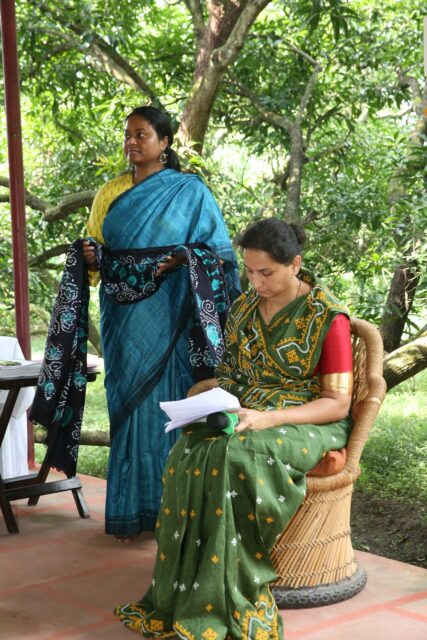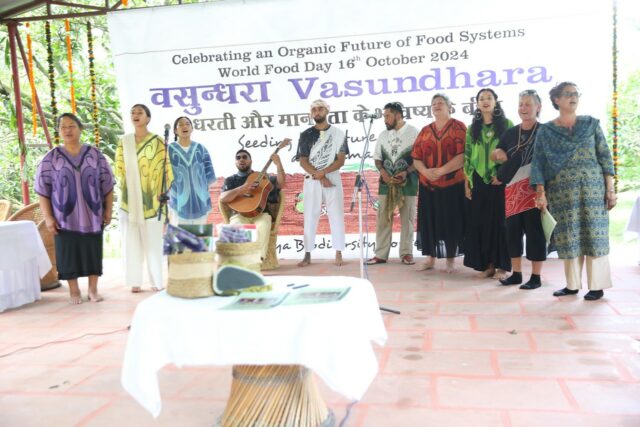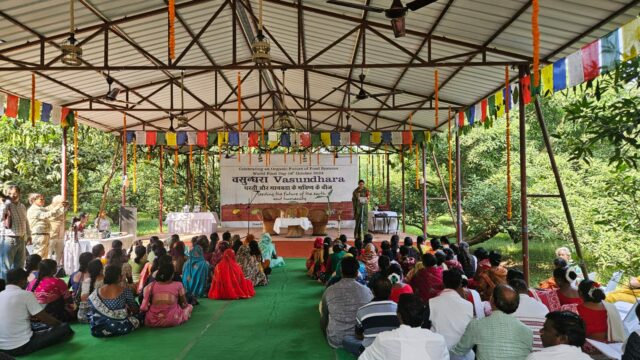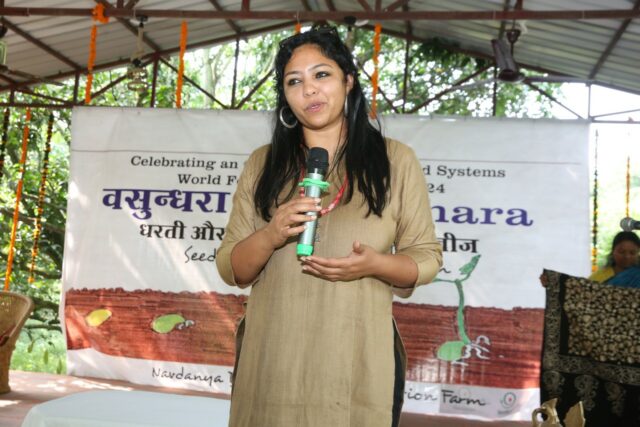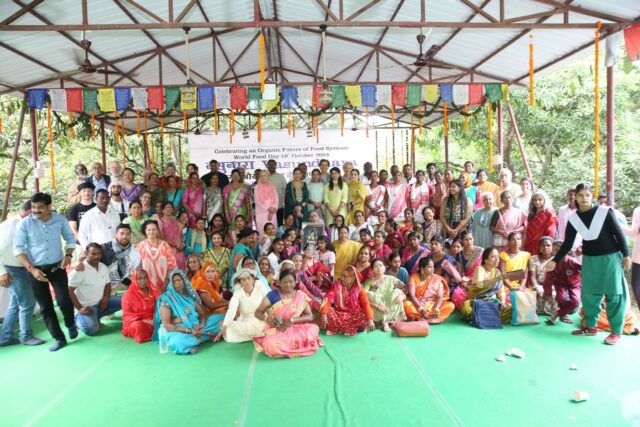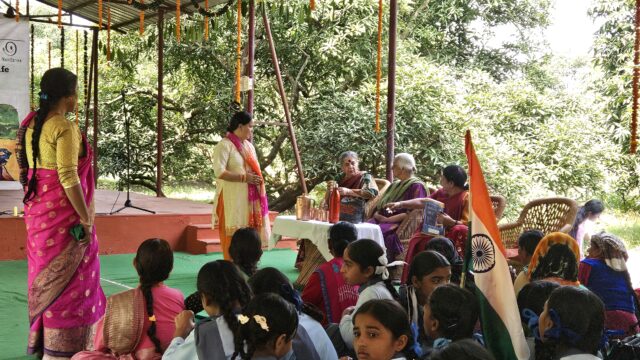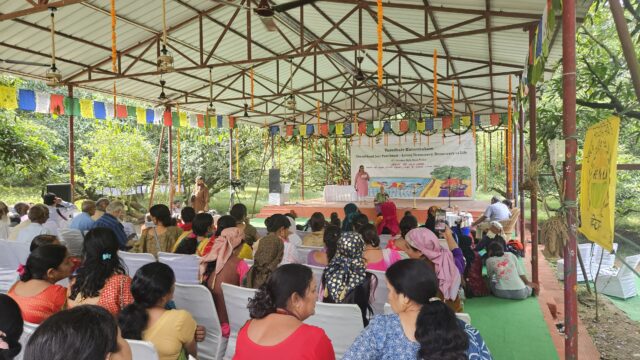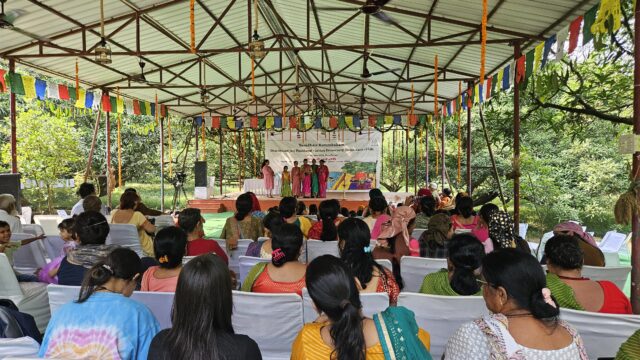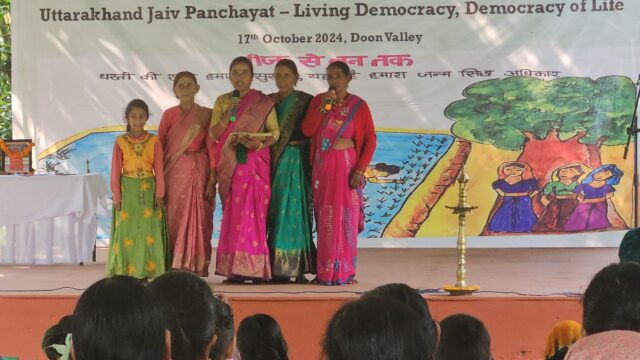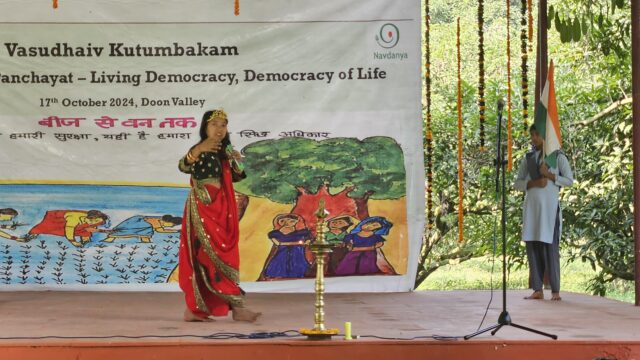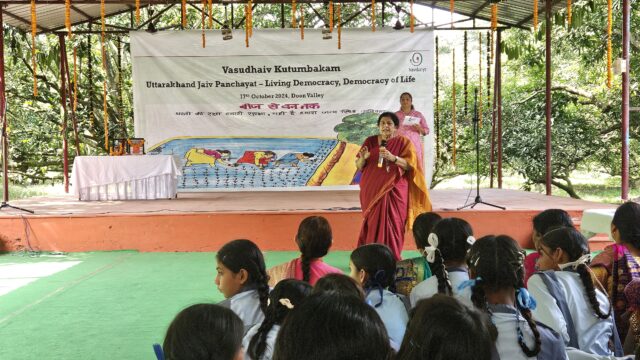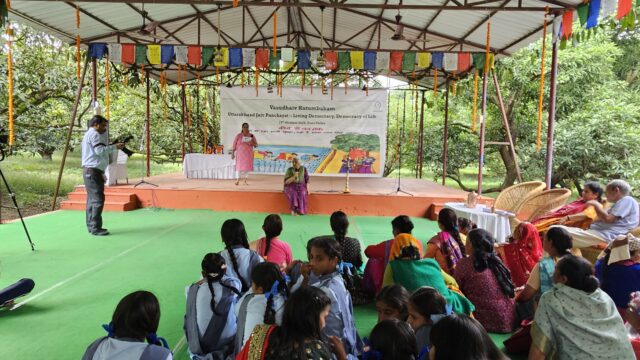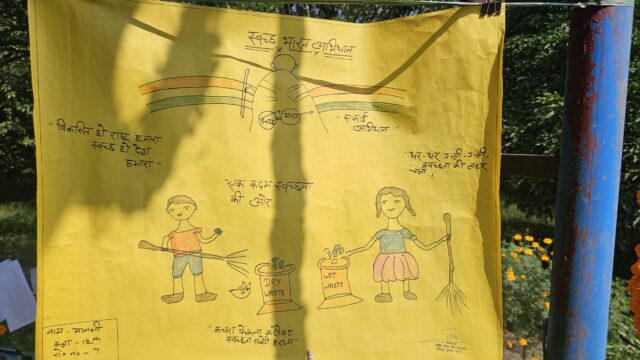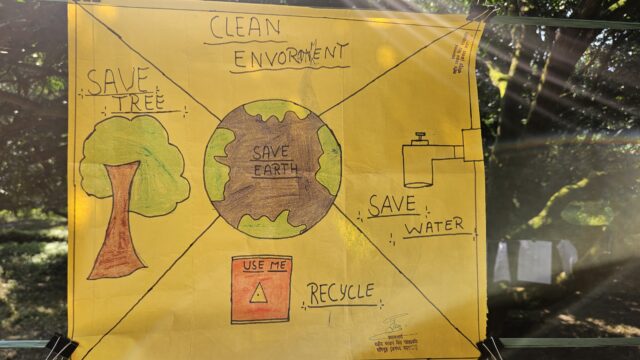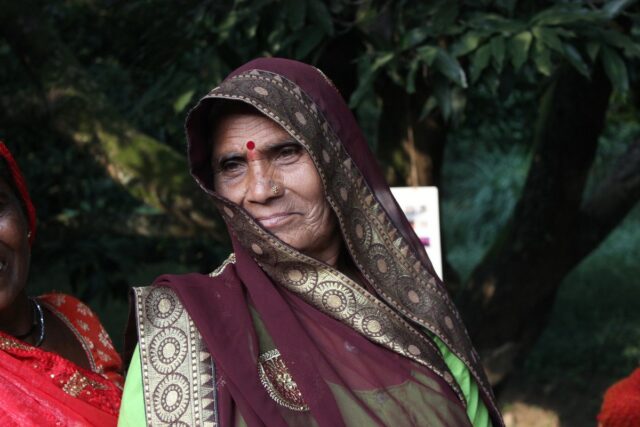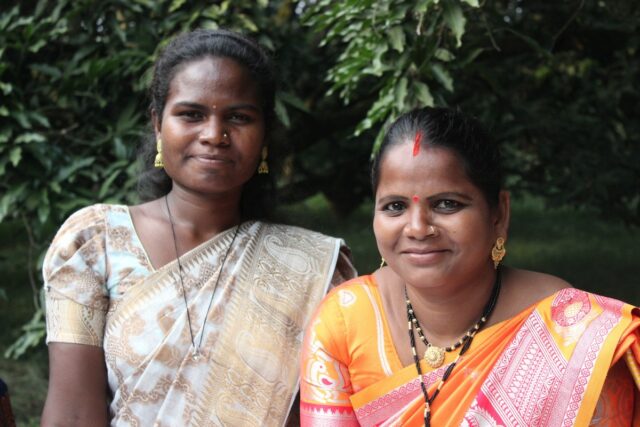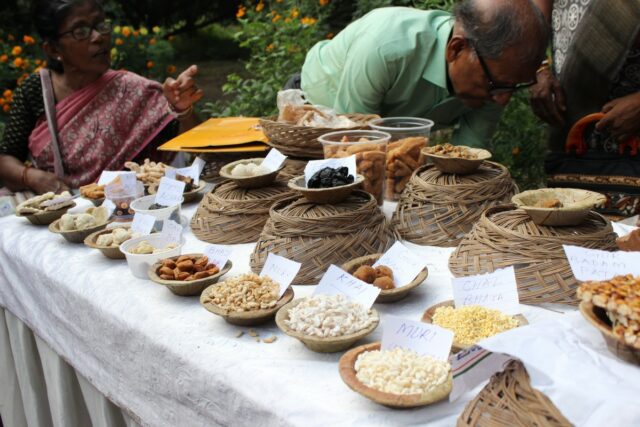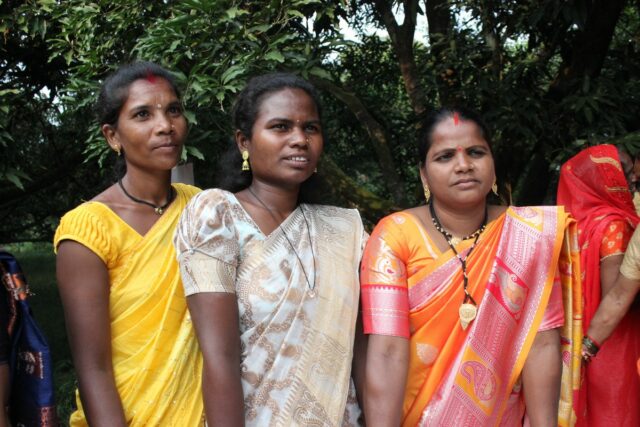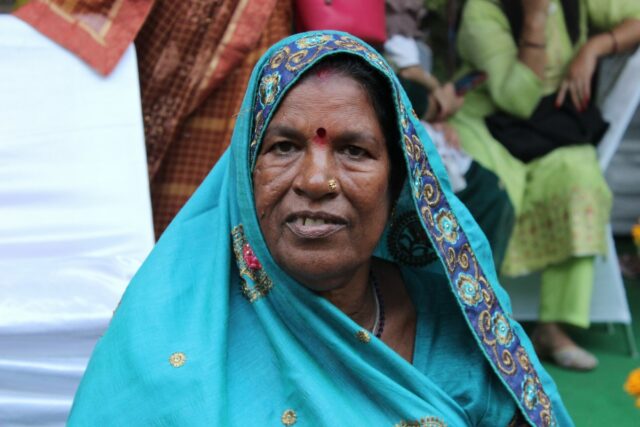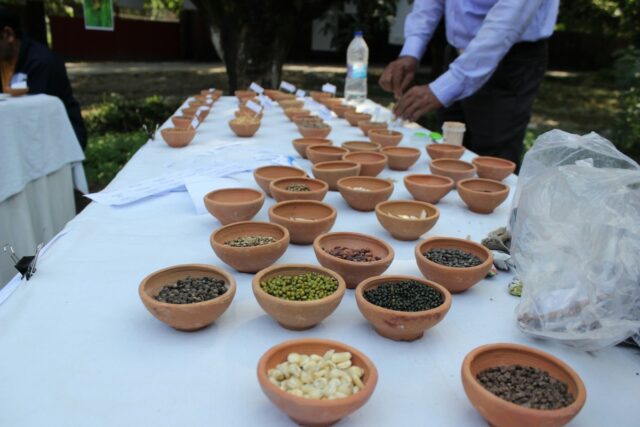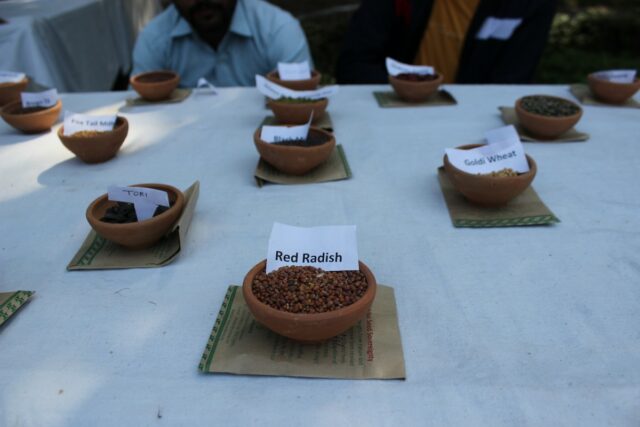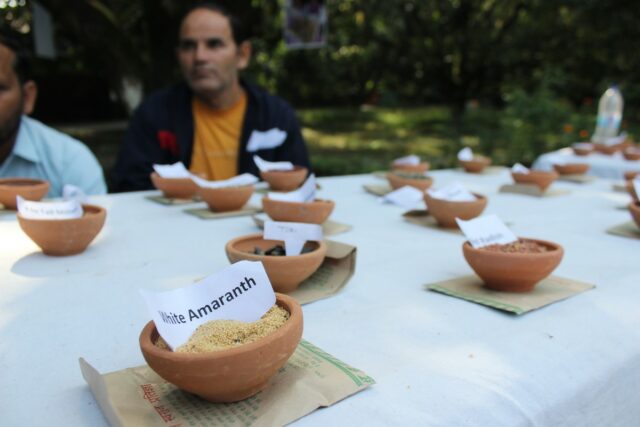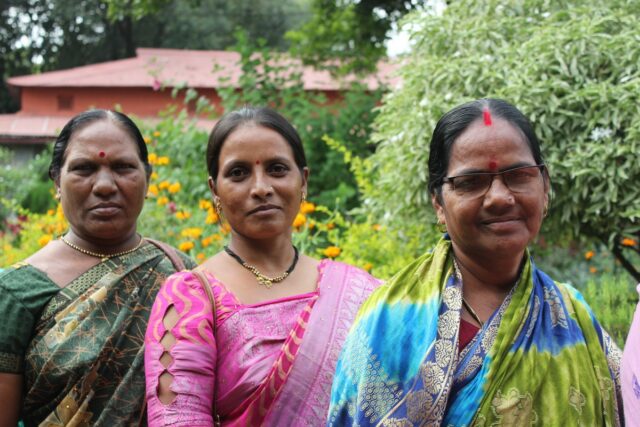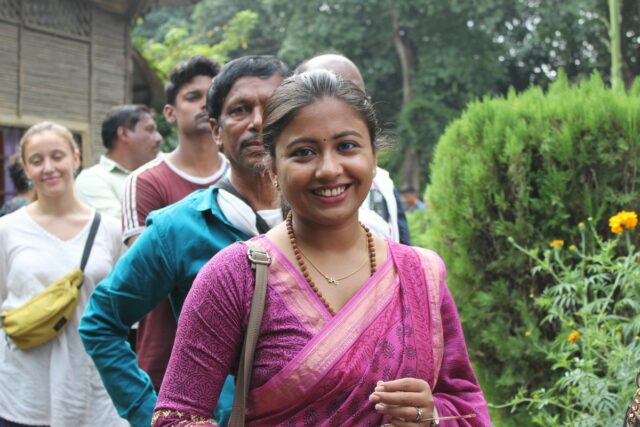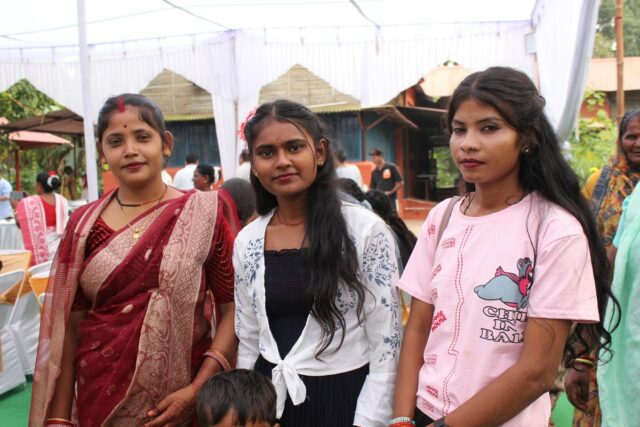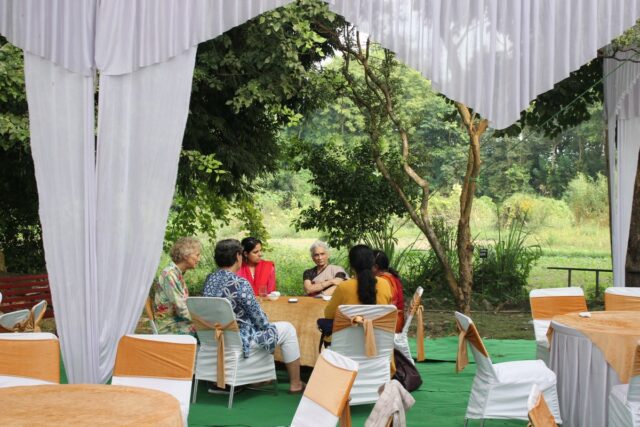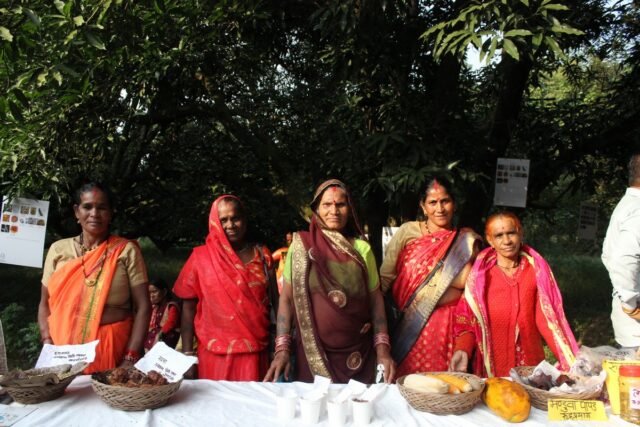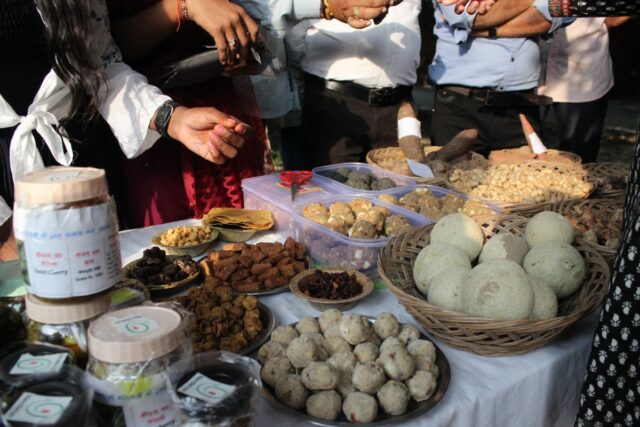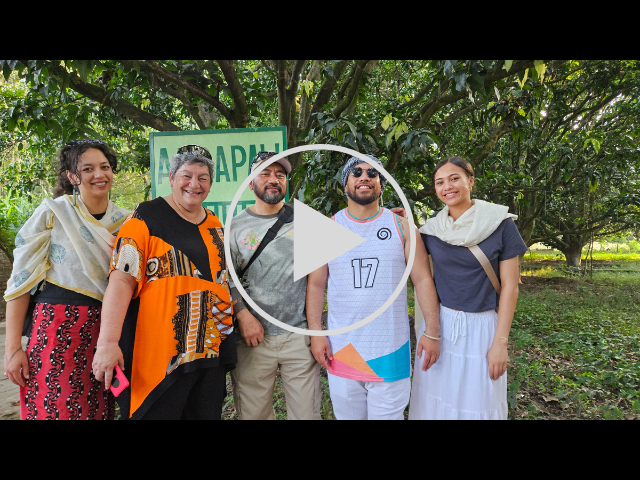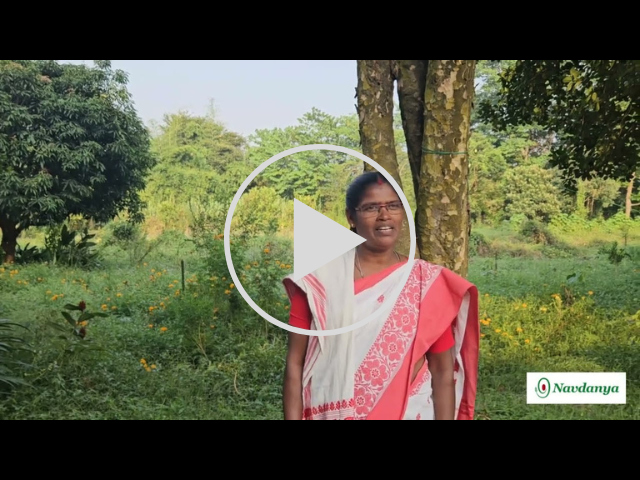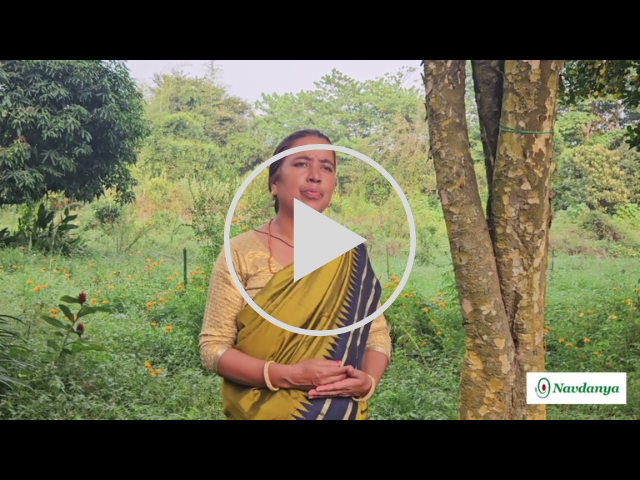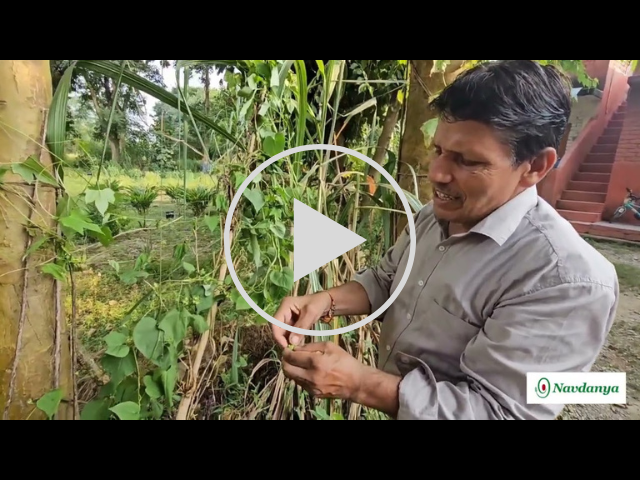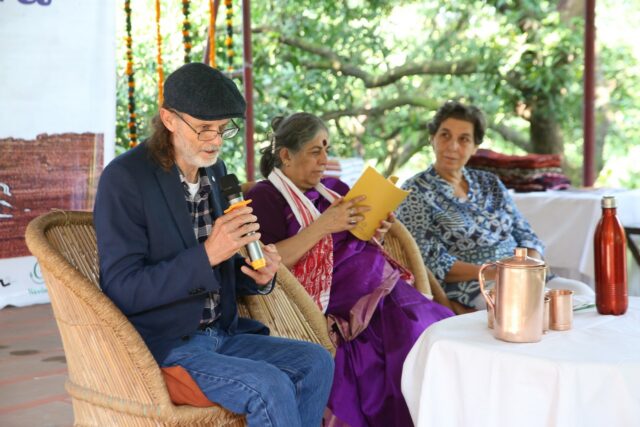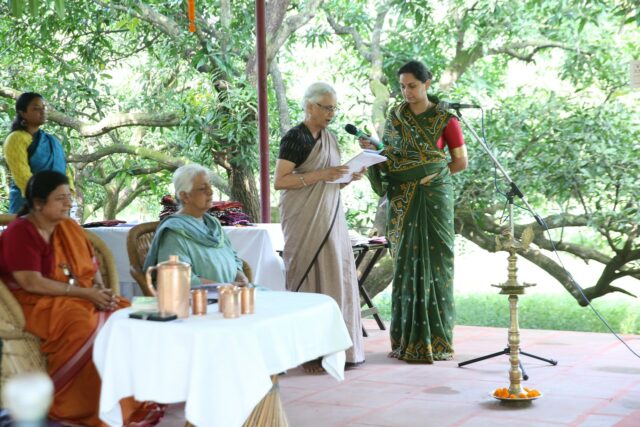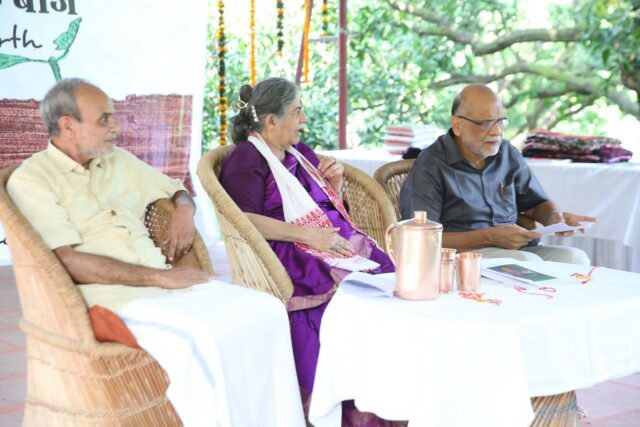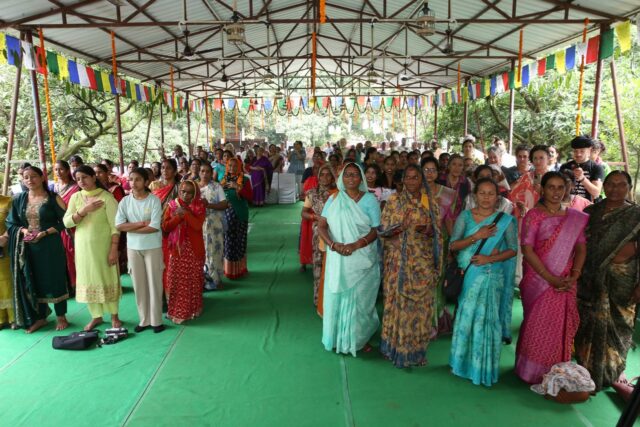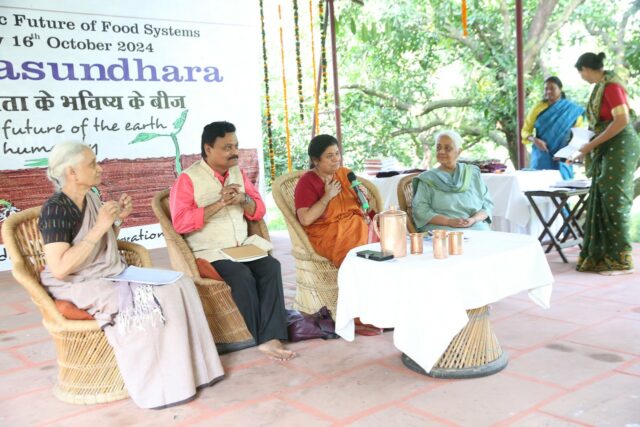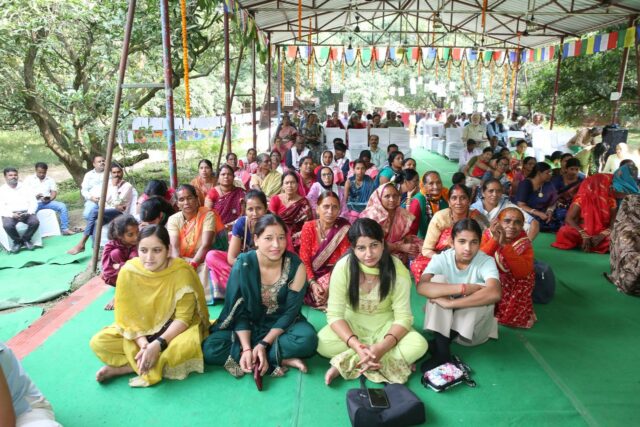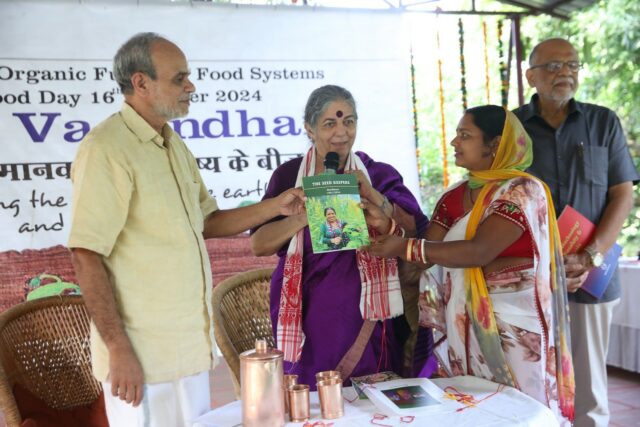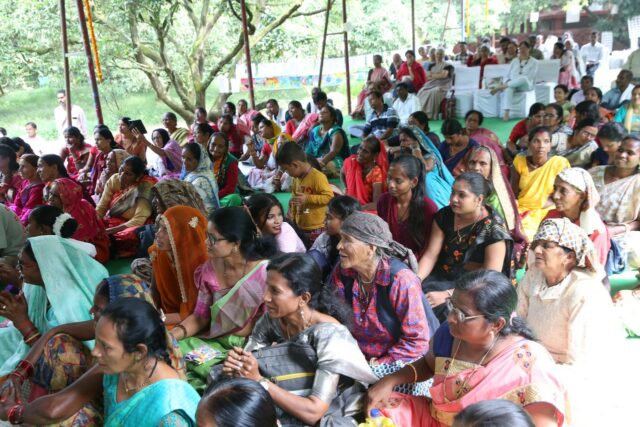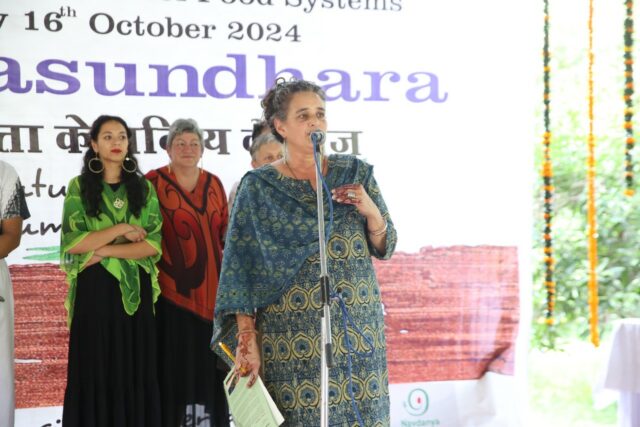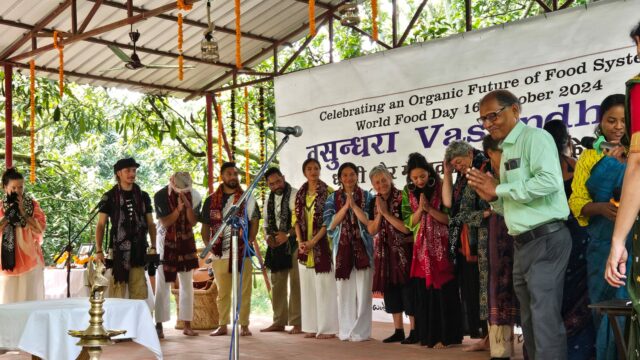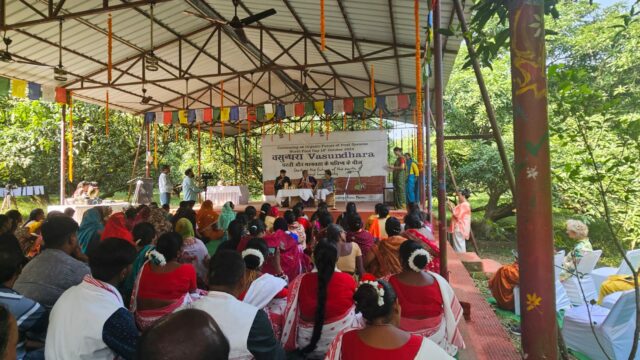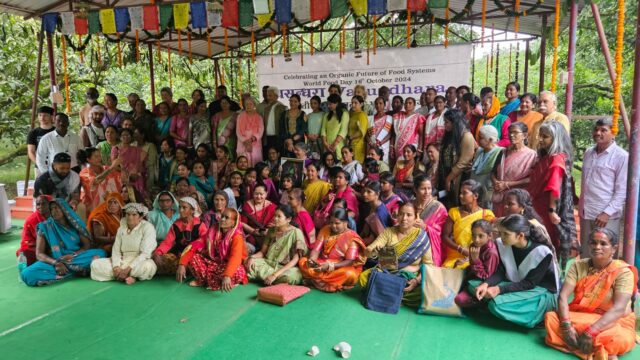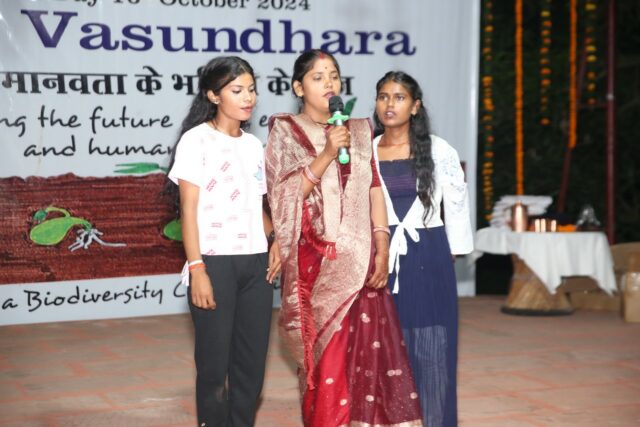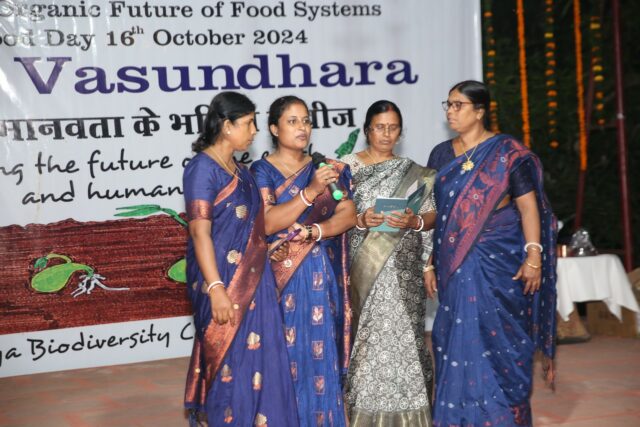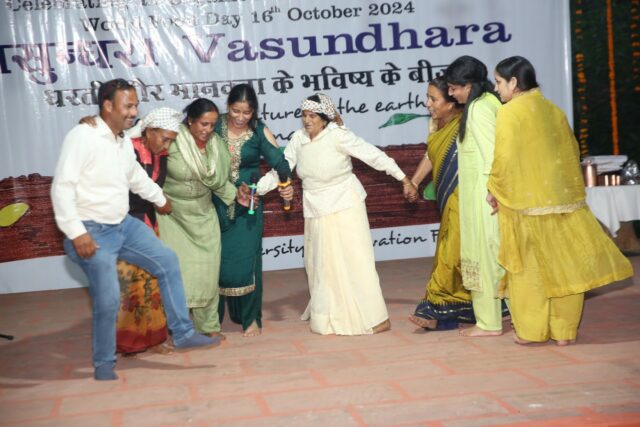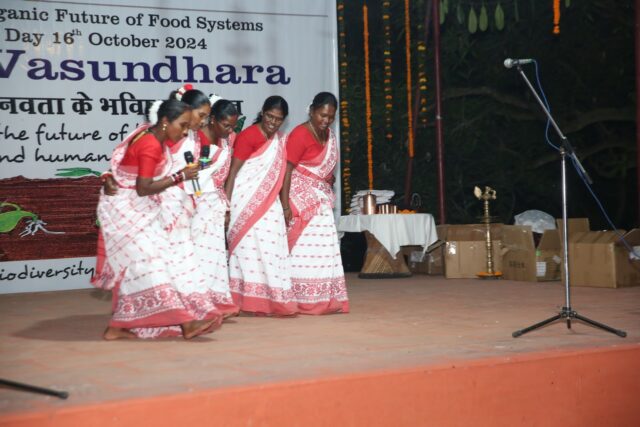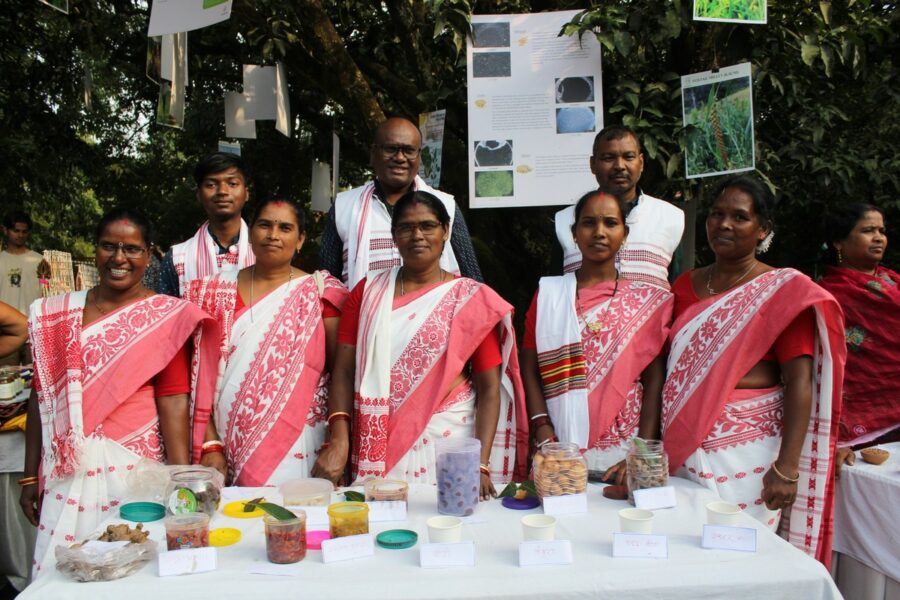
The Vasundhara Festival recently convened farmers, activists, and representatives from India and around the world—including Italy, New Zealand, Canada, Mexico, and Australia—to honor biodiversity as the cornerstone of local economies, sustainable food systems, and cultural identity. The festival took place at the Navdanya Biodiversity Conservation farm and showcased diverse ways in which communities integrate biodiversity into every aspect of daily life. By sharing traditional practices, foods, songs, and philosophies, participants demonstrated that conserving biodiversity is not only about protecting individual species but about preserving holistic ways of life that honor and sustain the Earth’s delicate ecological web.
Throughout the event, local farmers and global allies presented food, music, dance, and teachings that reflect an ethic of balance with nature. By centering nature as both a resource and a cultural compass, these communities show that a caring relationship with the land enhances health, strengthens local economies, bolsters food systems, and fortifies resilient, interconnected communities.
Photos: Navdanya
Nature as Culture
At Vasundhara, biodiversity was celebrated not merely as a scientific concept but as a living, breathing expression of community and culture. Indigenous foods, songs, dances, and ecological philosophies highlighted how closely the world’s communities are bound to their environments. Farmers from diverse regions discussed how traditional seeds, cultivation methods, and natural pest management are far more than just agricultural practices; they represent inherited wisdom passed down through generations. By tending to their lands with care and without harmful chemicals, these custodians create conditions where biodiversity is naturally conserved and even expanded.
As the Maori shared their six guiding principles for living in harmony with nature, they emphasized the intrinsic intelligence of the environment and the need for humans to respect and live in accordance with it. Similarly, Indian women from various regions presented foods prepared from wild plants specific to their bioregions, using ingredients that are both nutritious and rooted in cultural heritage. Their efforts underscored how local knowledge and biodiversity are tightly interwoven, with each plant or species holding a purpose that sustains broader ecosystems.
Biodiversity represents much more than isolated living species; it embodies a way of relating to the world. Each plant and animal species exists as part of an inseparable web of relationships, sustaining life on multiple levels through food, medicine, shelter, and economy. Conservation efforts, therefore, cannot simply focus on individual species but must also safeguard the cultural practices and knowledge systems that foster such ecosystems.
Biodiversity as Life’s Foundation
Biodiversity is not simply a list of species, but the foundation of all life, including human well-being. It provides the food we eat, the air we breathe, the water we drink, and the medicines that heal us. Biodiversity’s health is directly linked to the health of our ecosystems, which, in turn, impacts our own vitality and survival. Each species contributes to an intricate balance, with ecological roles that foster resilience and interdependence.
During the festival’s Jaiv Panchayat—a forum for local democratic expression—participants discussed how community-led efforts are already leading the way in creating cultures of resilience and stewardship. The event demonstrated that conservation must remain in the hands of the communities who live in direct relationship with their ecosystems, emphasizing that traditional custodianship respects the inherent intelligence of natural systems. When these communities practice conservation, they do so in a way that allows biodiversity to flourish naturally, enriching both human life and the environment.
Reviving Biodiversity Through Cultures of Resilience
The Vasundhara Festival illuminated the importance of reviving relationships with nature. Participants shared how their communities nurture the land without extraction, agrichemicals, or monoculture practices, creating ecosystems that thrive through diversity. Regenerating biodiversity requires returning to such practices of care, where communities act as stewards, not exploiters, of their land. As illustrated through various cultural displays, thriving biodiversity is a cultural achievement as much as an ecological one. Through traditional foodways, medicine, and worldviews, these communities embody a deep respect for the land that fosters resilience and ecological health.
The Vasundhara Festival illustrated that biodiversity conservation is as much about cultural preservation as it is about environmental protection. Through songs, dances, and ecological philosophies, the event highlighted that biodiversity lives not only in ecosystems but in the cultural expressions that celebrate and sustain them. When local communities honor their relationship with nature, they contribute to a living legacy of resilience that can inspire others worldwide.
This message resonated especially with younger participants, who had the opportunity to see what a biodiverse future could look like. They witnessed firsthand the beauty and abundance that arises when communities live in harmony with nature. This intergenerational sharing is essential to fostering future stewards who understand the importance of biodiversity and are committed to sustaining it. The festival underscored that inspiring the next generation is essential for continuing the work of conservation.
Photos: Erika Santoro
A Global Call for Biodiversity Protection
The festival’s participants made a powerful call to policymakers: conservation efforts cannot rely on corporate solutions or financial schemes that ignore the complex relationships sustaining ecosystems. Corporate approaches focus on economic gains without considering the cultural, ecological, and spiritual dimensions of biodiversity, leading to fragmented, ineffective conservation efforts. Real biodiversity conservation can only succeed by empowering local communities who possess generations of knowledge and experience.
At the festival, participants issued a collective pledge to reject economic models that prioritize profit over life. The pledge, grounded in a commitment to future generations, vowed to resist the encroachment of harmful practices and promote an “economy of life” that respects ecological integrity. Through this commitment, communities reaffirmed their role as defenders of biodiversity and stewards of life, standing against the exploitation that threatens the planet’s delicate ecological balance.
As highlighted in Navdanya International’s campaign, Biodiversity is Life, Not an Asset Class, the increasing threat of the financialization of nature stands to eclipse these local cultures of resilience. This model, driven by profit, transfers control of natural resources from the commons to corporations, disrupting the stewardship of local communities. The financialization of nature effectively commodifies ecosystems, stripping away the communal and cultural ties that keep biodiversity alive. Corporate ownership of land and resources fragments natural systems into economic assets, isolated from the communities that have stewarded them for generations.
The financialization schemes that currently threaten biodiversity fail to recognize this cultural wealth. By reducing nature to isolated, economic assets, these schemes erase the web of connections that define true biodiversity. Such models ignore the myriad ways in which communities engage with nature, losing sight of the values, stories, and practices that sustain ecosystems over time. True conservation cannot occur without honoring these interrelationships.
When local custodianship is replaced by profit-driven interests, the intricate knowledge required to sustain biodiversity is lost. Corporate approaches fail to consider the multi-layered relationships that local communities hold with nature—connections that honor and sustain ecosystems through generations. The exploitation and extraction that often accompany financialized models leave land and biodiversity vulnerable to degradation, leading to long-term ecological damage. As the festival demonstrated, communities that actively practice ecological stewardship are the last defense against this encroachment, standing as living examples of a sustainable relationship with the Earth.
We Must Listen to these Voices of Resilience
The Vasundhara Festival serves as a reminder that the real custodians of biodiversity are those who live in deep relationship with the land. Conservation is most effective when driven by those who understand the interconnectedness of life—small farmers, indigenous peoples, women, and local communities whose lives are interwoven with the ecosystems they protect. As the festival demonstrated, the protection of biodiversity must center these voices, making space for a diversity of worldviews that respect and uphold Earth’s natural balance.
Real change begins with listening. By amplifying the voices of these communities and adopting their approaches as global standards, we can build a world that respects biodiversity as the foundation of all life. Vasundhara’s call to action is clear: to safeguard the future, we must return to a relationship of care, reverence, and mutual respect for the Earth and all its inhabitants.
Also read: Vasundhara Festival: Seeding the Future of Earth and Humanity
Join the campaign “Biodiversity is Life, not an Asset Class“
Also read:
Biodiversity is not for Sale – Illustrated Booklet (October 2024)
Making Peace with the Earth: Protecting Biodiversity, People’s Rights and the Integrity of the Convention of Biological Diversity (October 2024)
Report: “Biodiversity is Life – Not an Asset Class: Debunking Biodiversity Credits, the Next Wave of Bio-Imperialism” (September 2024)
Understanding Biodiversity Credits – A Factsheet (October 2024)
Webinar – Biodiversity is Life: Rights of Nature vs Financialisation of Nature – Highlights (May 2024)
Making Peace with the Earth – Through Diversity, Mutuality, Non-Violence & Care – An Ecofeminist Manifesto, Navdanya International, Diverse Women for Diversity Network (2023)
Earth Democracy: Connecting Rights of Mother Earth to Human Rights and the Well-being of All, Dr Vandana Shiva with Navdanya Team (2021)


